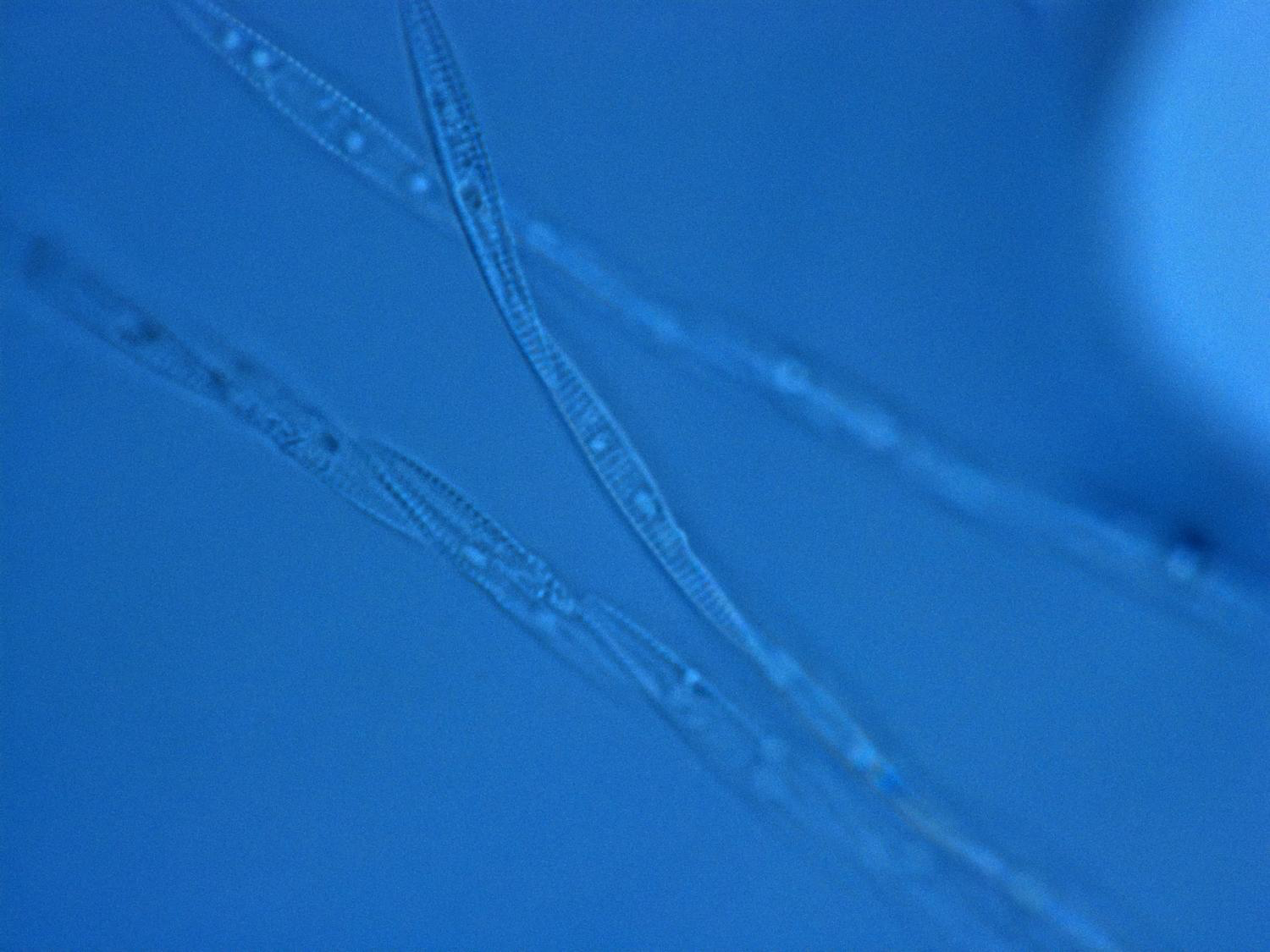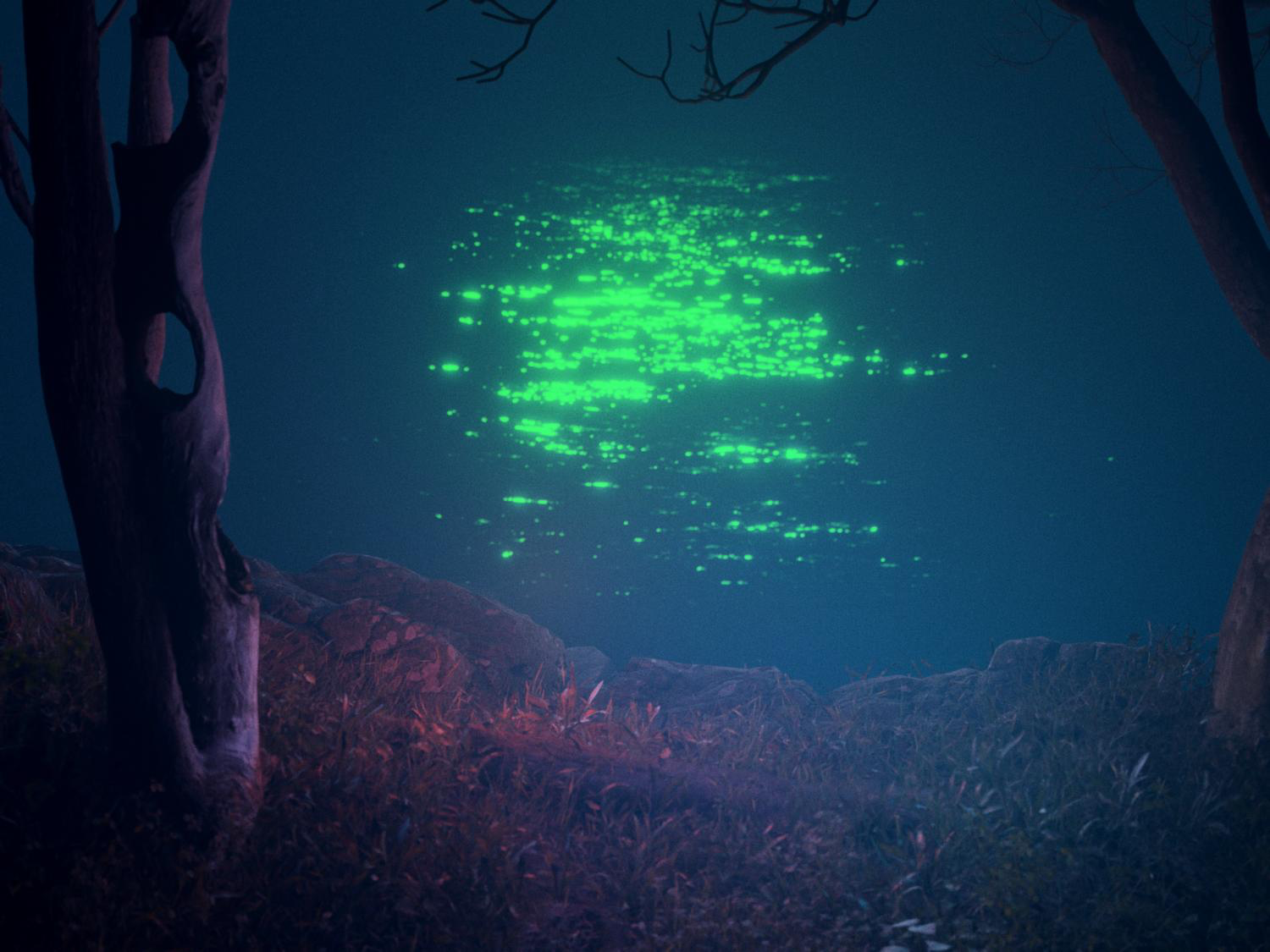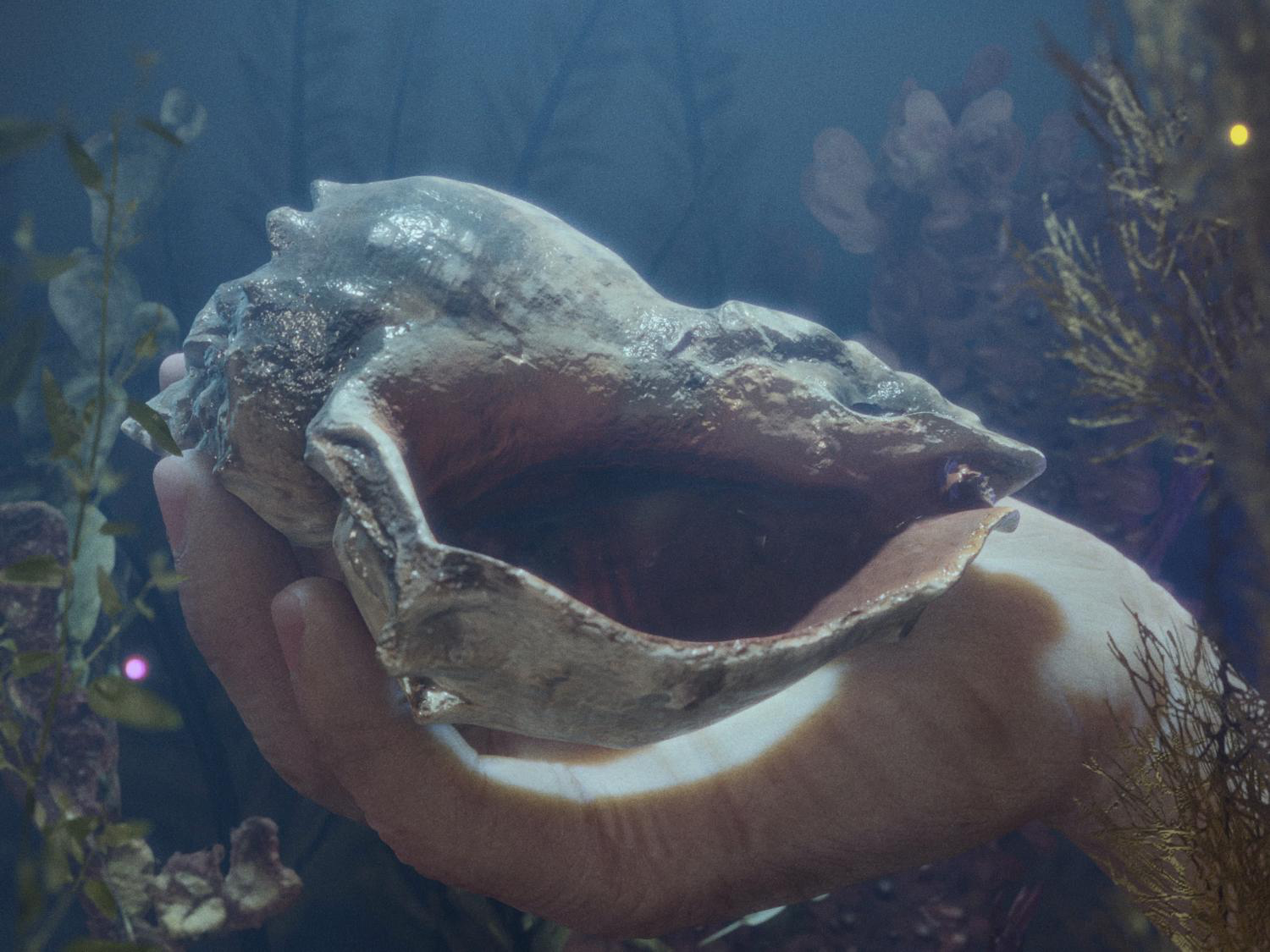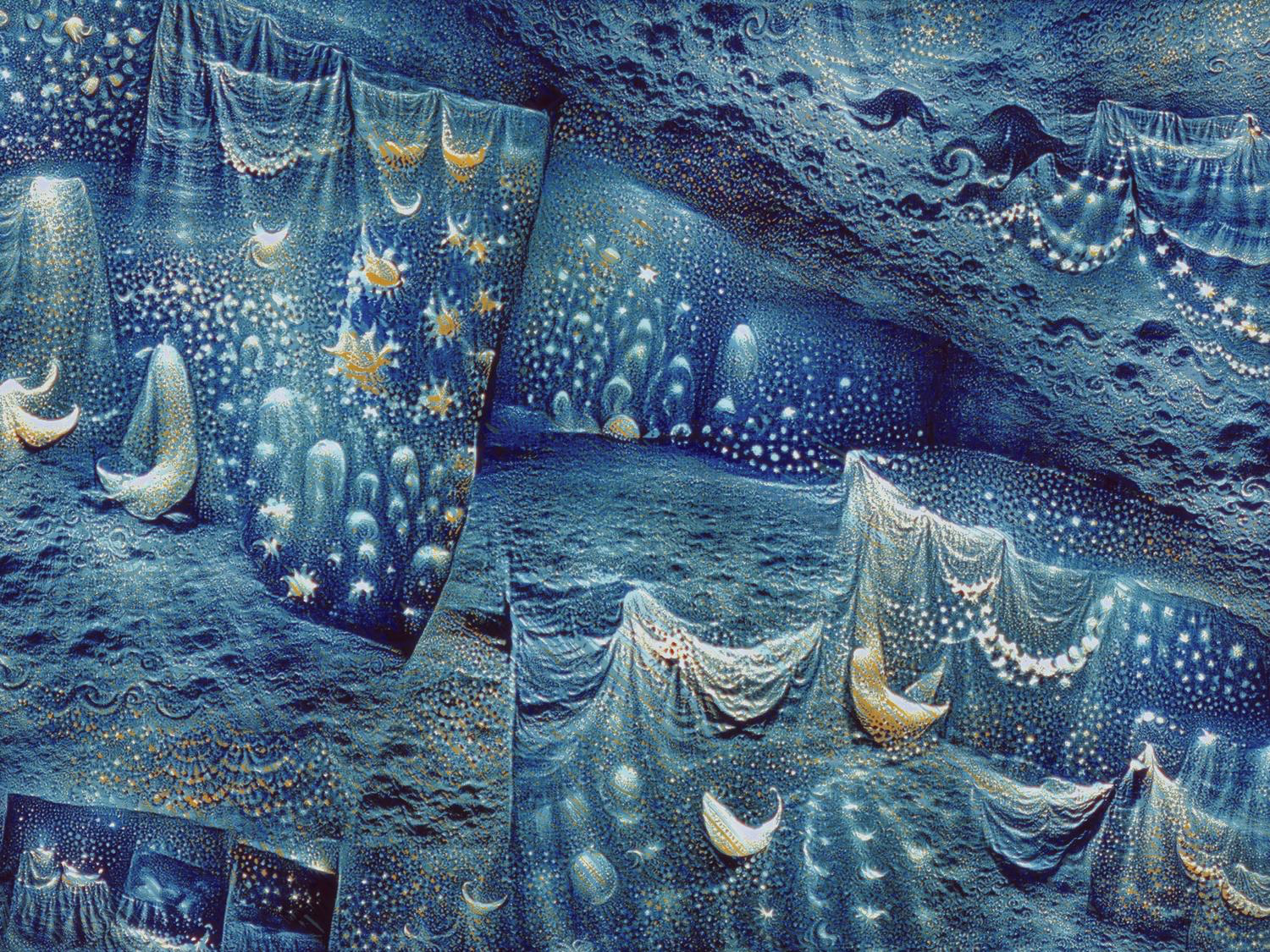Artist Fei Yining has created a short sci-fi animated film titled The Moonshore, whose quirky aesthetics follows a future where oceans are full of toxic algae called the Pseudo-nitzschia. This phenomenon has caused humanity to have frequent amnesias. They forget who they are and their role in a larger planetary ecosystem. To function, these future humans have to rely on an Artificial Intelligence (AI) caregiver to store all the memories of their species. The AI acts as a protective priestess and is worshipped as such, but the film asks, “How does humanity know that it is telling them the truth and not driving them further into extinction by making them forget their connection to planet Earth?”

Much like other science-fiction films, The Moonshore is an idea of a fictional future based on current anxieties. Amidst today’s reality of rapid AI development and climate change, The Moonshore is a beautiful, moving sci-fi short that reminds people not to forsake nature in the name of progress. The film’s warm tone, made to resemble nostalgic 90s animation, successfully creates a lasting impression. It ensures audiences walk away, understanding that there is only one planet where humanity can thrive and that, unlike AI, humanity has no option to back up their life. This is why The Moonshore by Fei Yining is aligned with the United Nations Sustainable Development Goals of Climate Action, Life on Land and Life Below Water.

The AI, a giant human-like figure with luminescent skin, narrates the film. It beckons humankind, acting as a benign overlord who gently strokes its disciples and speaks to them with authority. The AI’s tone is soothing. It speaks of the world as if reciting poetry, sometimes confusing audiences by taking its time to reveal all the facts.

The “gentle” giant tells the story of the pseudo-nitzschia which evolved from ordinary algae as global temperatures rose and sea waters warmed. Today’s rate of climate change means that rising ocean temperatures are a real threat. This phenomenon has been observed to cause water deoxygenation and increased water acidity, affecting the livelihood of marine biodiversity. As scientists wait patiently to observe what long-term effects this would cause, artists like Yining let their imaginations run wild to create cautionary tales.

The film ends with the AI reminding humankind of their connection with the oceans. It talks about how the same waters in high seas are found in human blood. Yet, the AI ends the film’s narration by stating that the oceans are nothing but oceans. During the film’s nearly 12-minute runtime, the AI reminds humankind about who they are and the different lives they share on Earth. After hearing that, it would be hard for people to think of the oceans as simply water with little to no meaning. Yet in the fictional world of The Moonshore, the AI is practically a deity whose words ring true for the majority. Anyone who dares to defy them would be condemned for being blasphemous. Yet, as with most popular sci-fi movies, it always takes a few courageous individuals to start a revolution.
Find out more about The Moonshore by Fei Yining and their other pieces by checking their website www.yiningfei.com or Instagram @feiyining.
